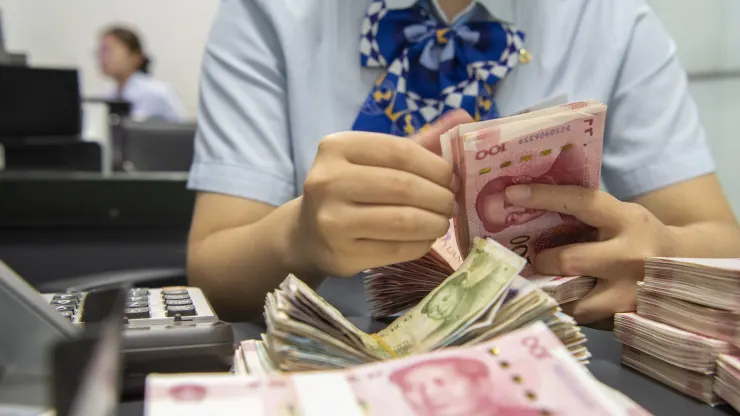China’s lenders cut the country’s benchmark five-year loan prime rate for the first time since June, extending Beijing’s efforts to revive the country’s anemic property market.
The Chinese central bank kept its one-year loan prime rate — the peg for most household and corporate loans in China — unchanged at 3.45%. The benchmark five-year loan rate — the peg for most mortgages — was cut by 25 basis points to 3.95%, according to a statement Tuesday from the People’s Bank of China.
The cut in the five-year rate in the monthly fix for February was larger than expectations for a reduction of between five to 15 basis points in a Reuters poll of economists. It was also the first since it was last trimmed in June by 10 basis points.
“The asymmetric moves signal authorities’ continued preference for targeted easing, and its desire to ramp up support for the property sector,” Louise Loo, lead economics at Oxford Economics. “The size of today’s move also reveals — in our view — a genuine concern among Beijing policymakers that the ‘incremental’ slow-drip of policy easing implemented thus far has had little impact.”
“But China’s property problem is ultimately not tied to mortgages. Today’s move could boost demand on the margins, but needs to be implemented and viewed in the context of a broader-range of measures to manage an inevitable property correction process,” Loo added.
China calculates its loan prime rates each month after 20 designated commercial lenders submit their proposed rates to the PBOC. These loan prime rates usually move in tandem to its medium-term policy rate, which the PBOC kept unchanged for February on Sunday.
China cut the reserve ratio requirements for its banks by 50 basis points from Feb. 5, providing 1 trillion yuan ($139.8 billion) in long-term capital, while urging banks to support loans for high-quality real estate developers.
The property market slumped after Beijing cracked down on developers’ high reliance on debt for growth in 2020, ensnaring some of its largest real estate developers in bankruptcy and weighing on consumer growth and broader growth in the world’s second-largest economy.

